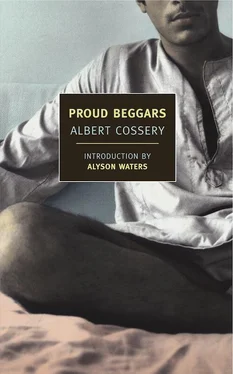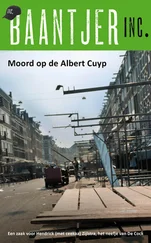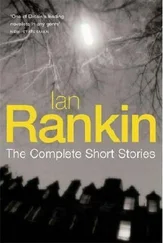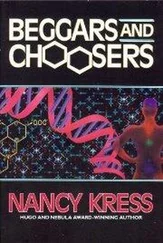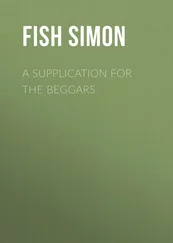“No, Excellency! There was no one!”
“Do you think it could have been a client?”
“What are you getting at? My clients are all good people. They couldn’t kill a fly.”
“But you could, you shameless woman! It wouldn’t surprise me if you were the murderer.”
At this direct accusation, Set Amina raised her arms to heaven in distress and looked like she was going to go back to her weeping, but the inspector stopped her in time.
“Tell me, do you know if she had money hidden in her room?”
“She didn’t have any money. I kept all her money.”
“You’re sure of that?”
“Completely, Excellency!”
“Very well, woman. I’ll take care of you later. And I advise you to stay calm.”
The police inspector wrinkled his brow and seemed deeply perplexed. His first findings had brought him up against a bizarre fact: the murder was not motivated by robbery — nothing was stolen. Nor was it the crime of a sadist. The medical examiner was positive: the prostitute’s body showed no traces of cruelty or defilement. She had simply been strangled in a neat and classical manner. It was a strange business. This was the first time Nour El Dine had been faced with the arduous task of solving the mystery of a motiveless crime. But such a crime in this milieu seemed unthinkable. A motiveless crime implied very sophisticated reasoning, an artful, cunning intelligence, and only an educated individual — perhaps only someone with a European culture — could carry it out. It was the kind of crime found in Western books. Again the inspector’s worried gaze swept over those present, looking for someone sufficiently intelligent to be a suspect. But none of those present answered this ideal description; they were far from offering the slightest resemblance to the imaginary murderer described in books. Nour El Dine felt so alone with this crime on his hands that he was frightened for an instant. He walked over to an armchair near the table, sat down, crossed his legs, then proceeded to light a cigarette.
A slave to routine, he would have to interrogate all these people. A pure waste, he knew in advance. What could he get from this assembly of pitiful men, who already were trembling at the idea of losing their honor? To measure his powers against such adversaries was a boring task. Nour El Dine felt sick with disgust; a mournful lassitude ravaged his soul and crippled all of his initiative. Actually, he was preoccupied with a problem of a sentimental and private nature. He had been called to this case at a crucial moment in his existence, a moment he had planned to devote to the most exigent of passions. His missed rendezvous with young Samir was taking on catastrophic proportions in his mind. He couldn’t stop thinking about it. Knowing the young man’s touchiness, Nour El Dine could not see how this disrespect would be forgiven. Samir would certainly be intractable at their next meeting. Would he even agree to another rendezvous? This agonizing question worked its way to the center of all his activities, giving him no respite. Even the sudden emergence of a motiveless crime in his drab universe could not relieve his uneasiness.
Despite appearances, Inspector Nour El Dine was a passionate admirer of beauty. The work he was obliged to do among the rabble had become odious, and to a certain extent exhausting. To be reduced to wallowing forever in the mud of the poor quarter in the company of petty delinquents and dumb criminals — savages all — offended his aesthetic sense and made him very unhappy. But he believed in his work; he had complete faith in the noble task of the police. He would have liked to handle only exceptional crimes, perpetrated by intelligent murderers with subtle minds. Instead, he was in constant contact with awful, uneducated beings.
What man would not have become embittered on seeing his ideal so ridiculed? The tyranny of destiny! Nour El Dine felt as if he were suffocating; he opened the top button of his jacket, freeing his neck which was bruised by the stiff collar. This gesture, so contrary to prescribed behavior, brought him a sense of calm. Reluctantly, his thoughts returned to the interrogation. The girls all had a perfect alibi. It was useless to question them; they were stupid, illiterate drudges who would only complicate his job. That left the three customers whose insignificance was more than obvious. As a matter of pure routine, he would check their identity then send them home. He was certain that none of them was the killer. Nour El Dine was more and more convinced — perhaps because he so heartily wished it — that the murderer had to be a man from another sphere, an intellectual with advanced ideas, something like an anarchist. The prospect of pitting himself against such a murderer gave him renewed vitality. He only hoped he wasn’t wrong.
The customer who prided himself on his friendship with the minister suddenly began to shout, “You can’t do this to me. You don’t know who I am.” Nour El Dine looked at him contemptuously; he knew the type. Besides, he’d had enough of this business, he wanted to finish as quickly as possible. The real inquiry would begin tomorrow. With a little luck he might be able to see young Samir before the night was over. But this ray of hope had no effect on his sadness; he remained somber, his features contracted in a severe, imposing expression.
The door to the bedroom where the dead girl’s body lay opened, admitting a fifty-year-old man with a grayish face and a long nose topped with spectacles. He was wearing a dirty, rumpled tarboosh. It was the police reporter.
“At your service, Excellency.”
“Sit there,” said the inspector.
The clerk sat down; he took from his briefcase various papers that he spread out on the table, then an indelible pencil whose point he licked several times. Blue marks could be seen on his pale lips.
“Who is first?” he asked.
“We’ll wait a little longer,” Nour El Dine answered, clearly displeased by the question. “Has the examiner finished with the body?”
“He won’t be long now.”
“I should hope not.”
After this brief exchange, Nour El Dine resumed his mask of exasperation; staring at the ceiling, he smoked his cigarette with the air of a man determined to flee the servitude of his arduous job. All the others present were staring at him; the policemen’s indifferent yet somehow threatening attitude made them suspicious. They didn’t know what lay behind it. The girls were all huddled on the couch under the illusory protection of Set Amina. They were terrified by the whole affair; at the same time, they were overwhelmed with curiosity about the investigation of a crime so close to them. Only Naila seemed really touched by the drama. Her sickness made her more fragile, more vulnerable than her companions. She didn’t have to stretch her imagination to see herself in place of the victim. She felt sorry for herself; in her sickly despair she identified with the dead girl and told herself she’d be better off killed than continuing this wretched life, with only a slow and ignominious death to look forward to. All these thoughts made her look distraught; without makeup her face had a waxy pallor; her eyes were fixed and feverish. From time to time a dry cough shook her whole body. The girl named Salima, sitting next to her on the couch, had put her arm around her shoulders and tried to calm her. As for Akila, the youngest girl of the house, after a moment’s prostration she had regained her composure and was only thinking of work. Despite the presence of the police and of her colleague’s dead body in the next room, she kept ogling from afar the three customers held hostage. But they had something else in mind; Akila’s winks and engaging smiles reminded them of a black reality that they wanted to forget. No doubt, it would be a long time before they would venture into a house of pleasure again.
Читать дальше
